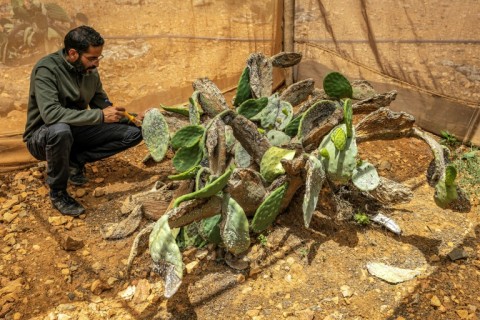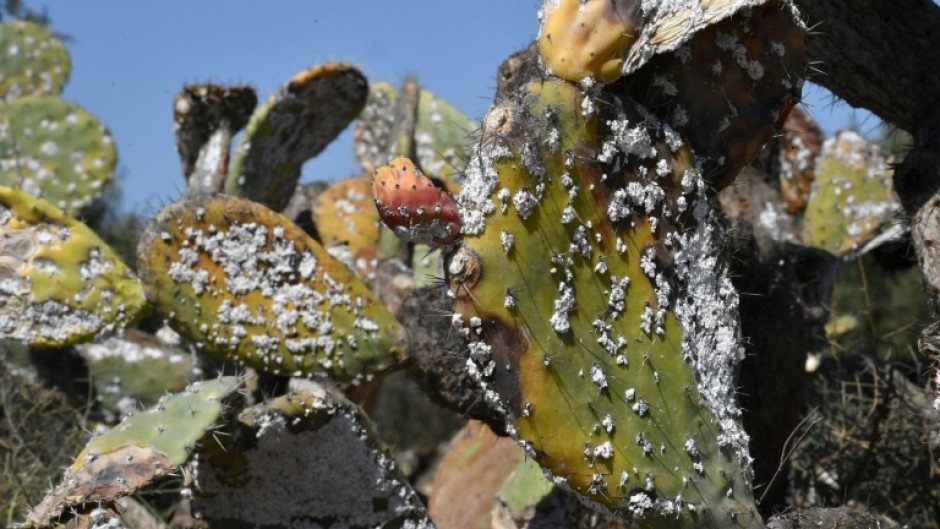TUNIS - Amor Nouira, a farmer in Tunisia's Chebika village, has lost hope of saving his prickly pear cacti, ravaged by the cochineal insect spreading across North Africa.
The 50-year-old has seen his half-hectare of cactus crops wither as the invasive insect wreaked havoc on about a third of the country's cacti after an outbreak in 2021.
Prickly pear is consumed as food and used to make oils, cosmetics and body care products.
In Chebika, as in other rural areas in central Tunisia, many farmers' fields of prickly pear -- also known as Opuntia -- have been spoiled by the cochineal, which swept through North Africa 10 years ago, beginning in Morocco.
The insect, like the prickly pear, is native to the Americas and feeds on the plant's nutrients and fluids, often killing it.
The infestations have resulted in significant economic losses for thousands of farmers reliant on prickly pear, as authorities struggle to combat the epidemic in a country where its fruit is widely consumed as a summertime snack.

Tunisian authorities estimate that about 150,000 families make a living from cultivating Opuntia.
The North African country is the world's second-largest producer of its fruit, after Mexico, with about 600,000 hectares of crops and a yield of about 550,000 tonnes per year, according to the Food and Agriculture Organization (FAO).
Only production allocated for export -- about a third of overall crops -- has remained in good condition, said Rabeh Hajlaoui, head of the department of plant health at Tunisia's agriculture ministry.
"We're making every effort to save these plants, which are an important source of income to some locals," he explained, as one litre of extracted Opuntia oil can be sold for as much as $4,200.
Farmers also plant prickly pear cacti for their resistance to drought and desertification, and sometimes use them to demarcate and fence property in Tunisia and neighbouring Libya.
In Morocco, where the first cases of cochineal were found in 2014, Opuntia is cultivated over a total of 160,000 hectares.
In 2016, the Moroccan government issued an "emergency plan" to combat cochineal infestation by experimenting with various chemicals, burying infected cacti and conducting research on developing variants resilient to the insect.
Despite the plan, by August 2022, about 75 percent of Opuntia crops in Morocco had been infested, according to Mohamed Sbaghi, a professor at Rabat's National Institute of Agricultural Research (INRA) and the emergency plan coordinator.
In neighbouring Algeria, authorities recorded an outbreak in 2021 in Tlemcen, a city near the border with Morocco.
Prickly pear cultivation in the country covers around 60,000 hectares, and the fruit is so cherished that a festival dedicated to it is held every year in the eastern Kabylia region.

